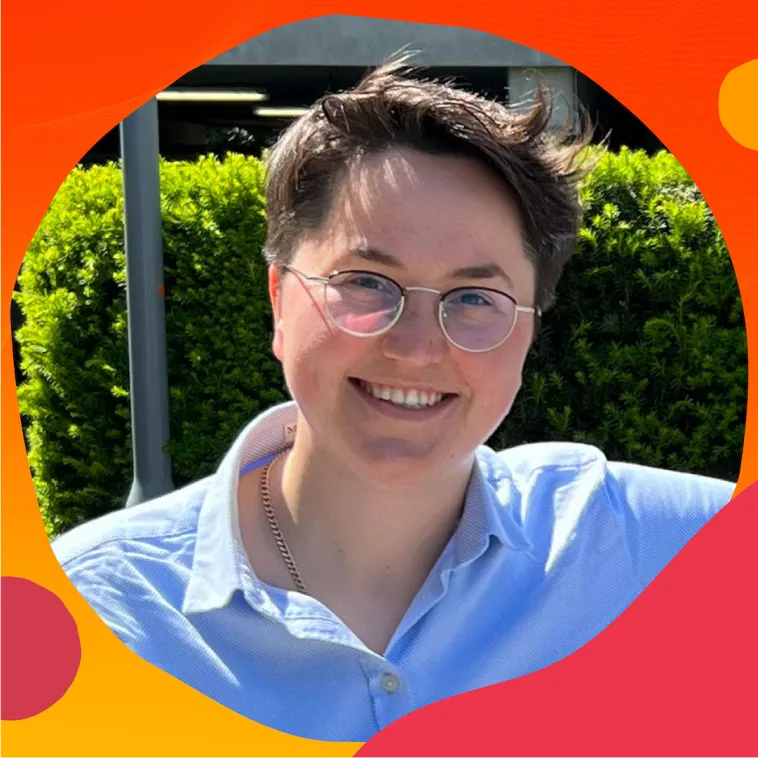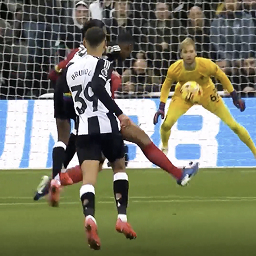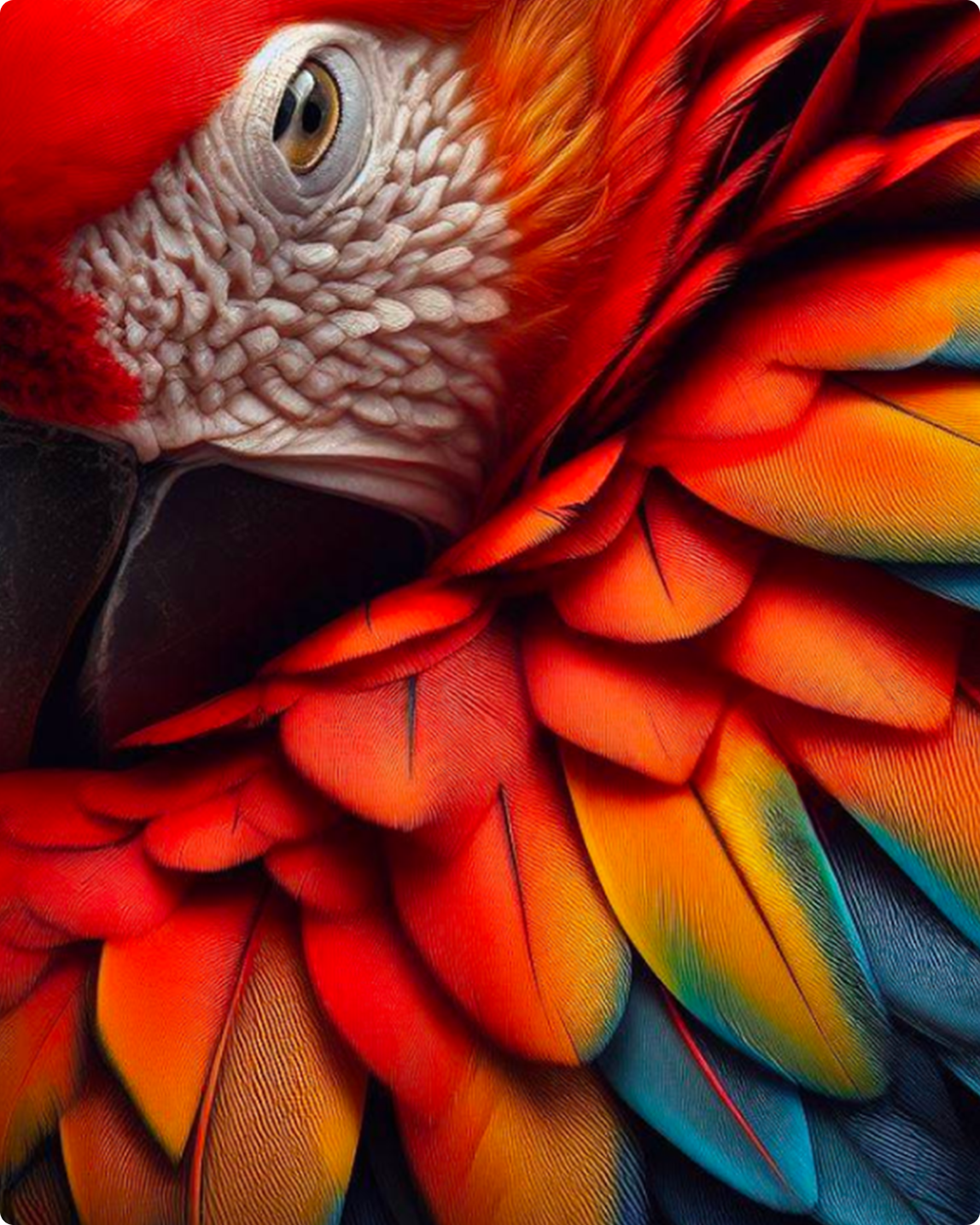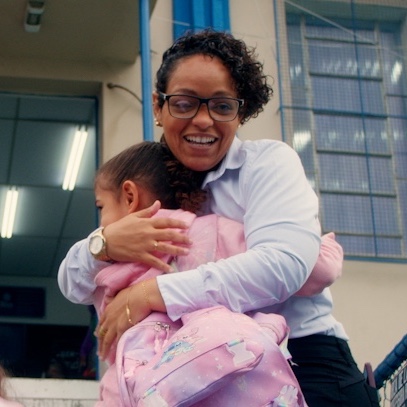This is Pride
Learn from LGBTQIA+ people at Microsoft, who share simple truths about their lives with a hope to invite everyone to make Pride and expand LGBTQIA+ equity and equality.
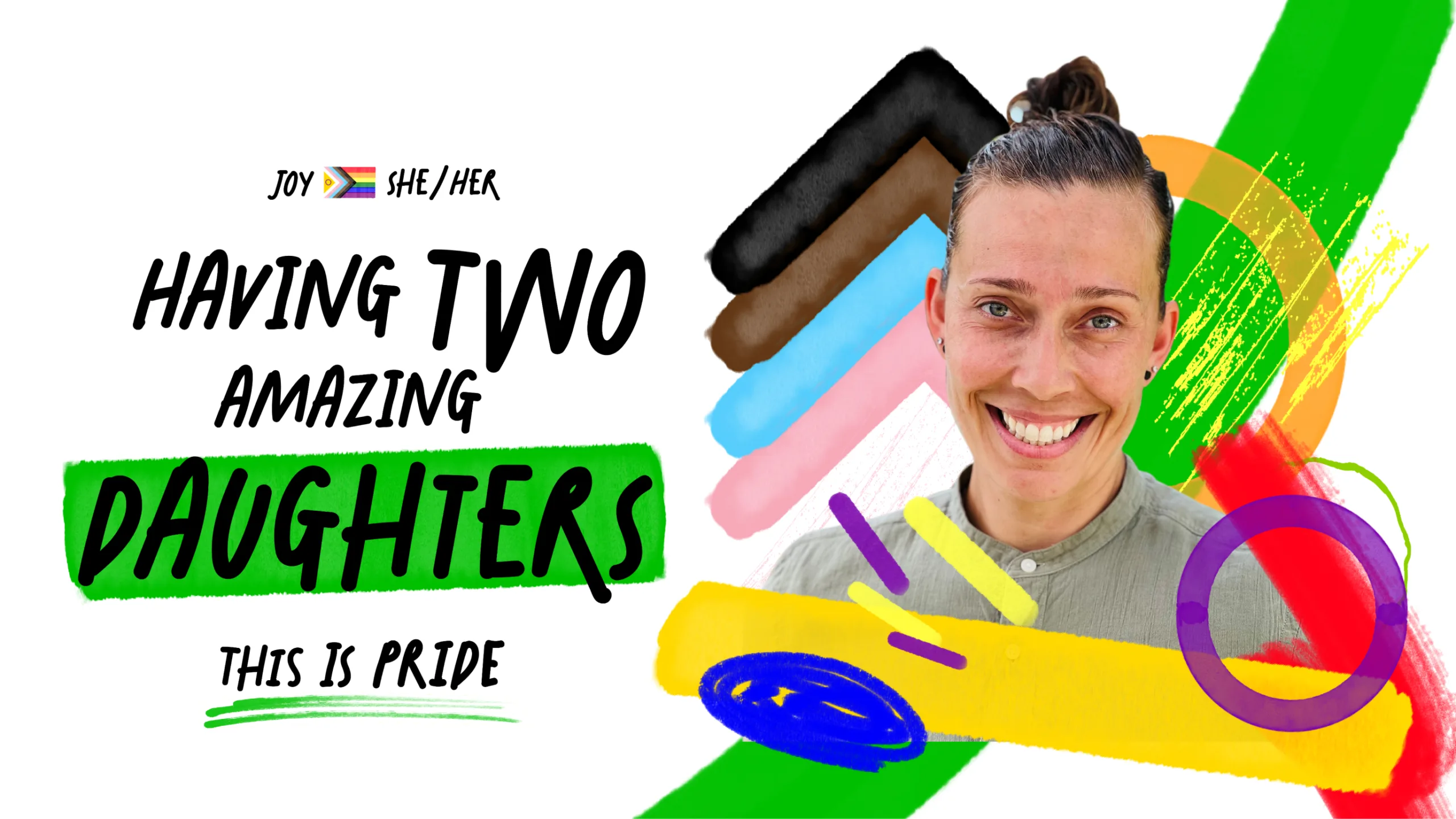
Joy
She/Her
San Diego
I’m part of a family raised in church, and I’m the only one who’s gay in my family. I was playing NCAA basketball and when I came out at 20 to my single mom, she stopped talking to me for a while. And I was taken back because that’s all I had – my mom.
Pride is about being who you are without caring what other people think of you, and Pride is about letting other people be who they are. We’re all raised a certain way and come with different perspectives. I try to encourage people to examine their own perspectives. Hate crimes not just toward LGBTQIA+ people, but just in general due to any differences, are on my mind a lot. It shouldn’t matter what someone else is doing with their life. Let’s be kinder human beings. It goes a long, long way.
I joined the military in 2010 during the ‘Don’t ask, don’t tell policy,’ and even when they lifted the policy, you still kind of felt like you had to hide who you were. You have to be able to share yourself to be happy with yourself and to spread happiness to others. I take pride in being kind. I try to live in the present, be myself, and do what I can to help other people today. I like to share the kindness. I like to motivate others. What can you do as an individual to do your best today not just for yourself but to give back?
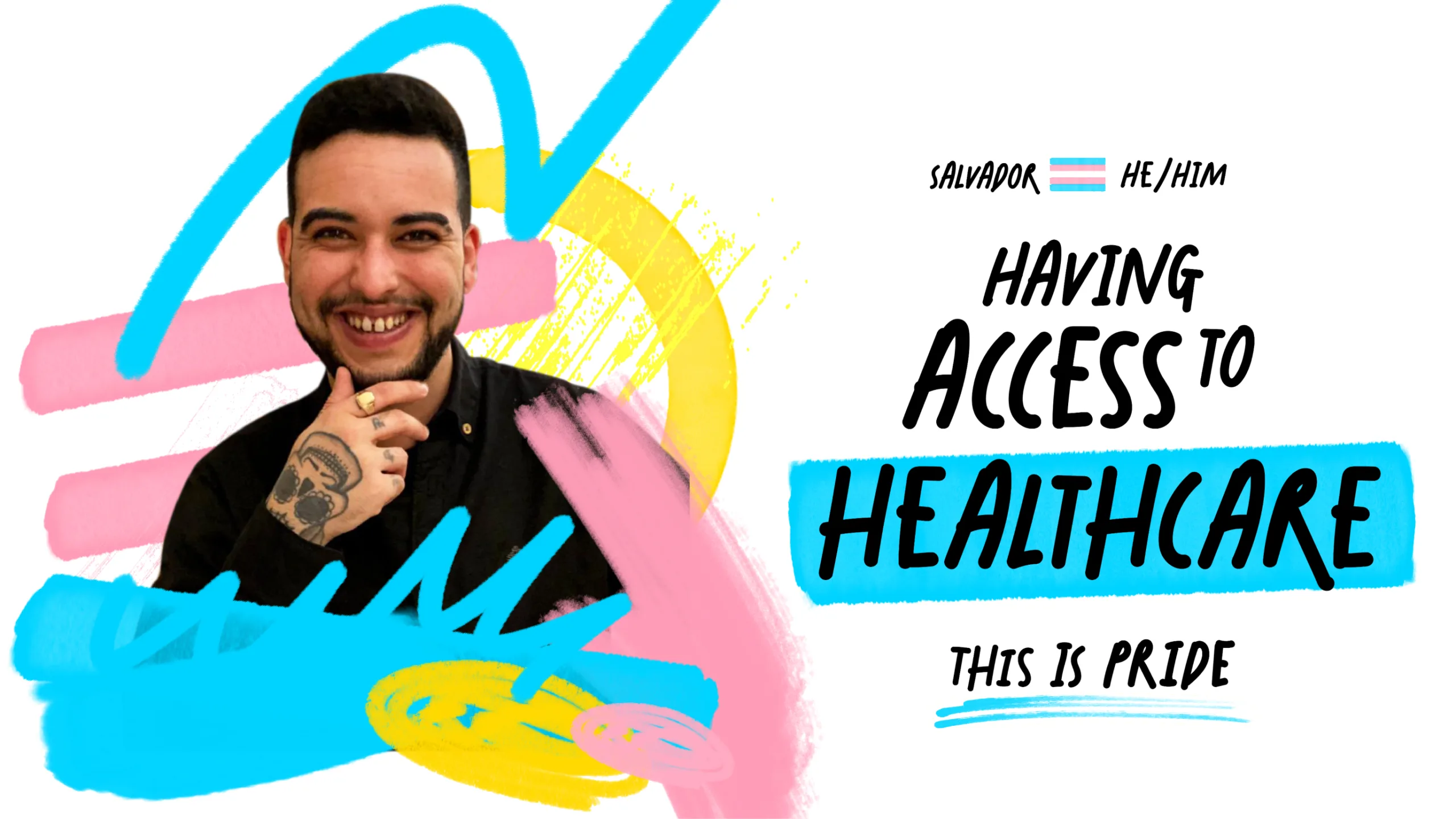
Salvador
He/Him
Lisbon
Any person should be able to go to the doctor if they need to. We should all be able to care for our health. But globally, access to healthcare is not equal in many ways, and one of the disparities intersects with being trans.
In Portugal, we receive after-the-fact invoices sometimes for healthcare. My first experience with this was having my invoice rejected by insurance for medical care that I had coverage for. They thought I had made this appointment for another person, a woman. As a trans man, I need access to different types of medical appointments and medical providers. This is the situation that I live in. That’s it. This response left me triggered. It is already difficult to exist like this, let alone have difficulty getting coverage for the same healthcare that others receive.
Every time I had to tell my story to a new medical practitioner or admin—several times, sometimes for over an hour—I would break down. And I was doing it alone, but probably others were having similar conversations, fighting a similar fight.
I had never really participated or been outspoken about trans rights until my direct experience. But once that happened, I felt it was the path I needed to be on, even if I didn’t understand the impact it would have on my life. I used my experience to make a positive transformation: the creation of a new insurance process from now on, for trans employees at Microsoft, so that difficulties like what I went through won’t happen in the future. In this sense, I know that being a Microsoft employee helped me make an impact at this scale, and I am so grateful for that. Now, this fight is about everyone having the same access to healthcare. This has ended up being my mission. We need to change things, not just in my context, not just in my country, but everywhere. If everyone does a bit for each other, maybe we’ll have some results.
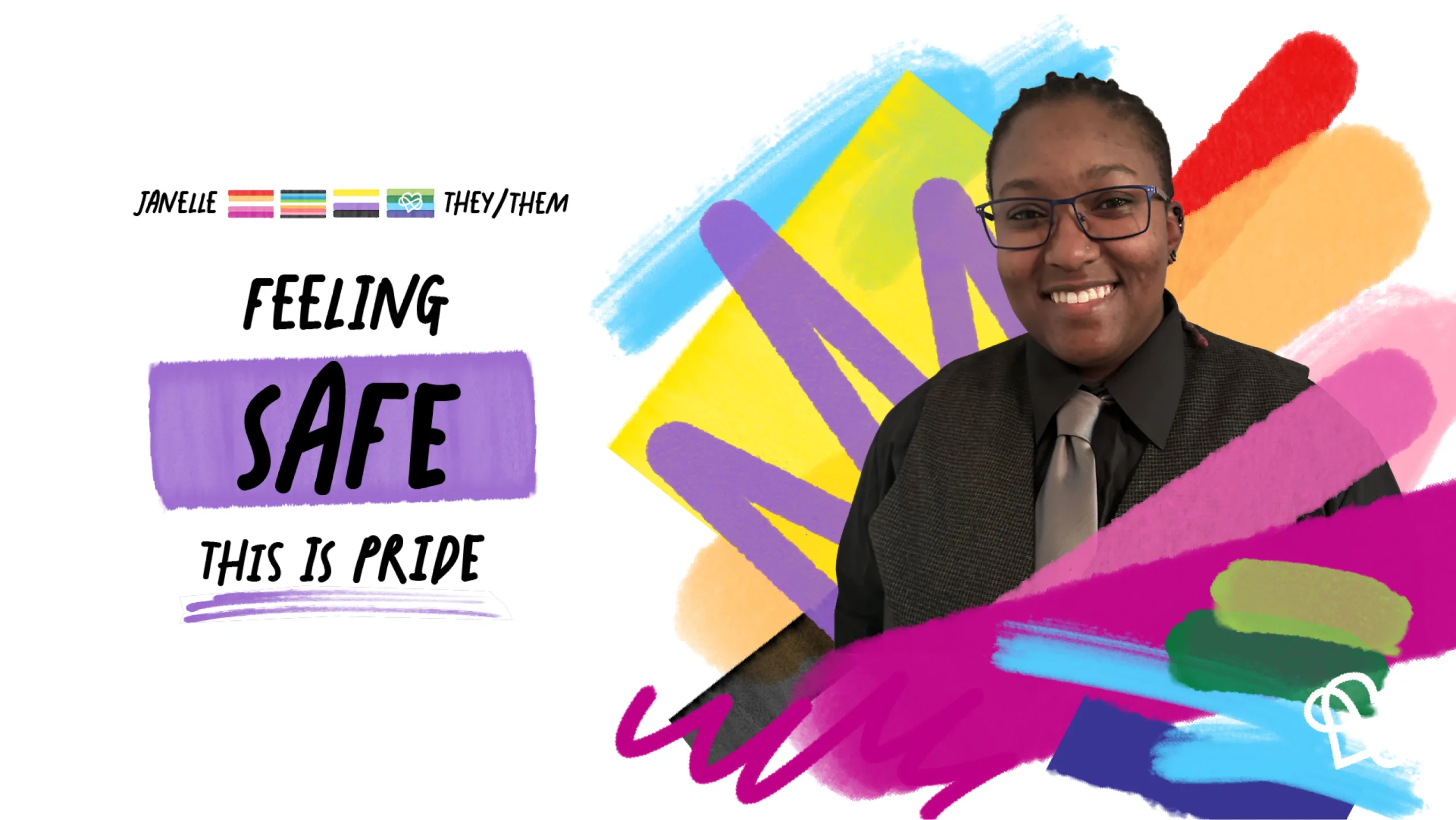
Janelle
They/Them
Baltimore
We’re all just people trying to live our lives and be our authentic selves—both in the workplace and out. I want to make sure that this world that my wife and I are raising our three kids in is safe for all of them. Not only in the face of LGBTQIA+ discrimination, but also with the intersectionality of being Black in America. It’s disheartening to see that many groups, even sometimes in the LGBTQIA+ community, continuously attack trans existence. Some of the most awesome people I’ve met at this company, alone, have been trans. In my own personal experience, I have amazing friends who are trans, who are beginning their transitioning journey. And I am non-binary. It just hurts that this all continues to be an issue.
I have gone through spaces where I have felt extremely uncomfortable either being the only queer person in the room, being the only Black person in the room, the only non-male person in the room… I didn’t ever necessarily feel safe and it’s just not ok. It’s tiring. Safety is imperative. I’ve done interviews in each position I’ve held at Microsoft, and many of the people I’ve interviewed are excited to see me because they’re also Black, Queer, Trans, Nonbinary, and any combination of those identities. They see me and see a place for them here at the company. Representation definitely matters. And there’s more to how I’ve represented myself because of where I’ve come from and where I aim to go.
It shouldn’t matter who you are, you should be able to make a name for yourself. You should be able to be who you want to be in this world. For people who see themselves in or resonate with my story, know you have an ally. For those who might only know really different experiences, ruminate on these stories, learn from them, and grow. We as humans have the capacity to be compassionate, to be empathetic. Listen. Be respectful. That’s what it comes down to at the end of the day for me.
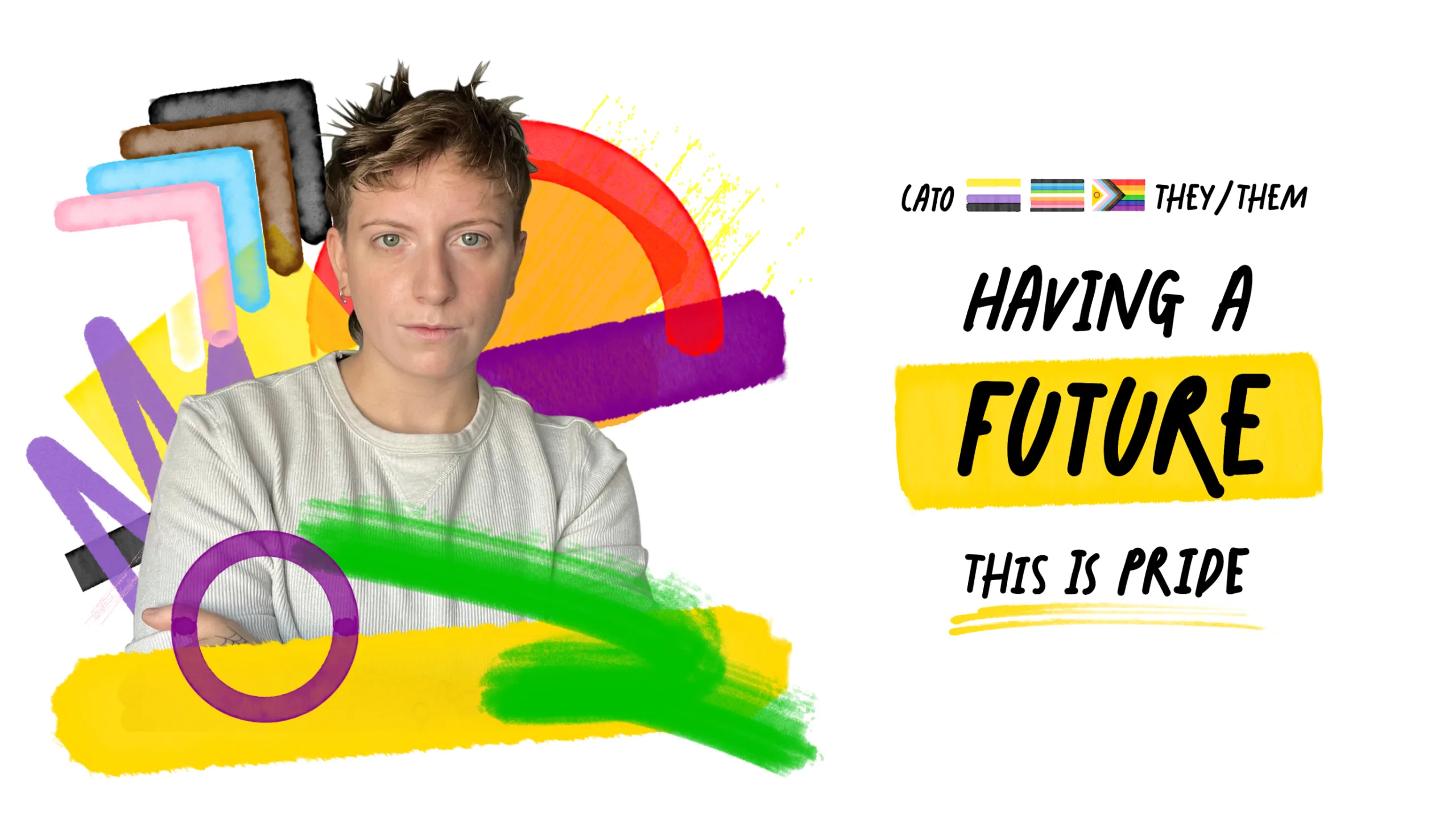
Cato
They/Them
Annapolis
We all deserve a future, the ability to envision ourselves living authentically in a world that celebrates our existence. When I came out at 18, I was one of the many LGBTQIA+ youth who experienced homelessness during my journey. As a teenager, I didn’t have the resources to build myself back up from those experiences or know how they would affect me for the rest of my life. When I started my career, I put the pain from those experiences into action. I came into the tech industry unwavering in my identity and advocating for empathy. I was lucky to grow from those experiences, mend relationships, and be here today.
Now, I’m in my twenties. I just moved from Florida, where I witnessed the beginning of social and political silencing of LGBTQIA+ folks. Seeing the government take away basic human rights and safety from my friends, family, and folks within the community, especially the BIPOC trans community, has been devastating. We have so many opportunities to use our power, platform, and privilege for good. Support starts with asking everyone in the community, not just those we identify with most, “how can I help?” With this notion in mind, I started a queer nonprofit, Disrupt the System, as a space for positivity, safety, and growth within the community. While the world tries to legislate us out of existence, we can show that empathy will always overcome fear. Disrupt the System will be launching in 2024 as a central location for mental health resources, mutual aid funds, and community connection. We’ll sponsor folks in the LGBTQIA+, BIPOC, and Trans communities with scholarships for the arts and tech. We’ll invite voices of all generations to push the boundaries and create representation for the LGBTQIA+ community.
It’s about taking our stories and redirecting the power within our own narrative. It’s reframing our struggles to say “I won’t let this define me. I’m going to redefine the world based on the experiences that I’ve had and create a better path for everyone that comes after me.” We have limitless potential to make positive change, we just need the courage to stand up for something bigger than ourselves. We are so much stronger than the barriers in front of us when we’re united.
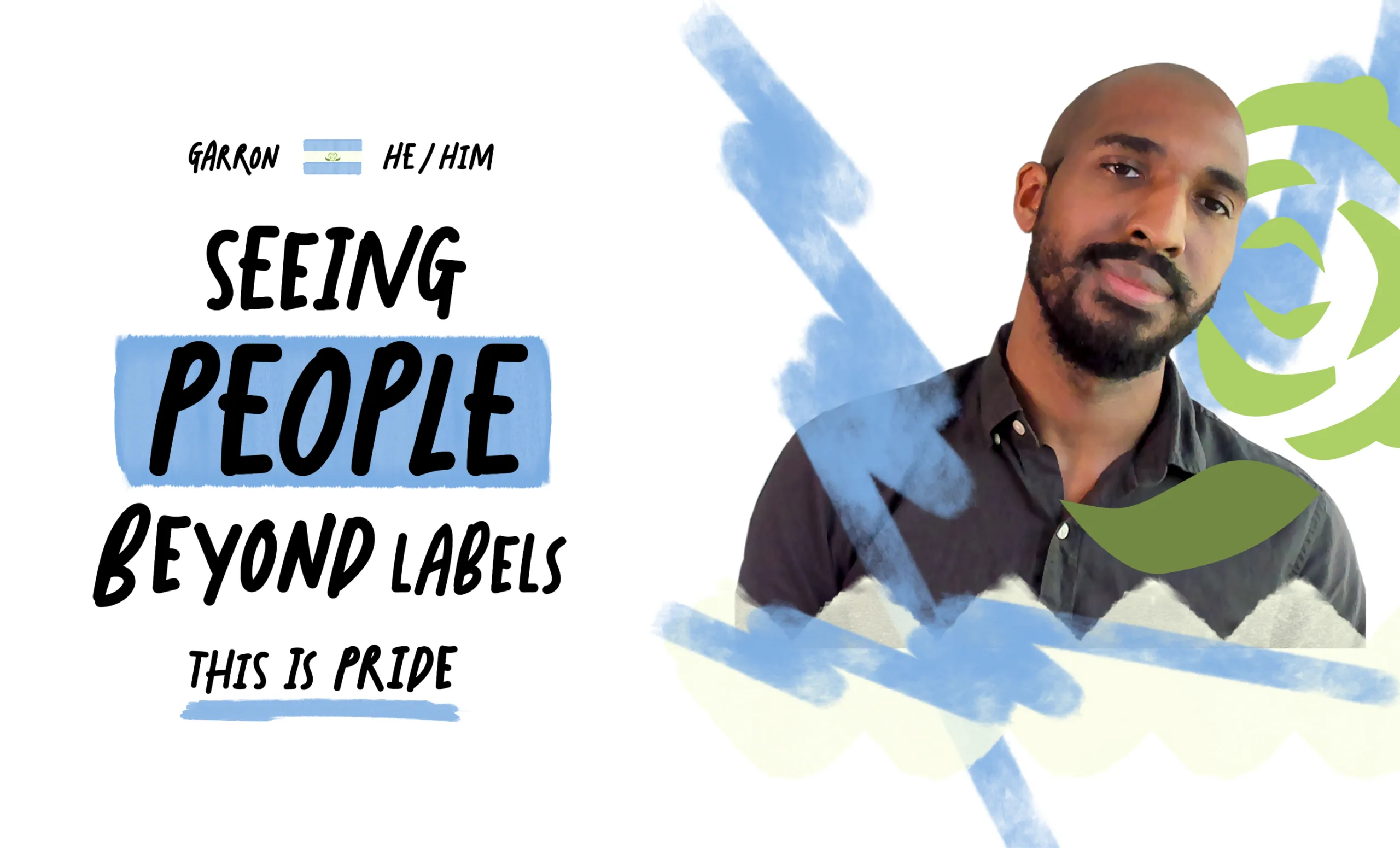
Garron
He/Him
Seattle
I think any of us would rather be able to define who we are than live by the assumptions that people make of us, especially if those assumptions make us feel uncomfortable. I felt “weird” for a really long time because of the experiences I had growing up where people would assume or even dictate how they thought I should be. Now, I’ve realized that normality is a construct and I’m intentional about trying to broaden other people’s perceptions. In terms of how, I ask: “What am I good at or what do I have to offer? Where do I have the ability to influence?’
One of the amazing opportunities that I’ve had is through leading multicultural product strategy for the Xbox and Windows Stores, to empower creators and customers. We’ve seen the data on representation, and it matters for many people, but Black and LGBTQIA+ consumers especially care about it. I think there’s definitely lots of room for more intersectional representation in gaming. I do appreciate, though, that more people are realizing the multiple dimensions that we all hold as humans and that a Black person isn’t ‘only this.’ I, myself, often lean into who or what resonates with different aspects of my identity in various mediums whether that’s games, movies, TV, or even a healthcare provider.
It’s important to me to be creating accessible space for Black and queer joy as someone who also experiences disability. I often think about and am inspired by the work that people have done that came before me. It was very recently that I learned Angela Davis is lesbian, and I had no idea! And I also have two gay uncles. I reflect on the experiences of these influential people, and ask “what are the things that the people who came before me wish that they could have done but weren’t able to do? What’s the legacy I want to leave and how do I advance that?” That’s something that really motivates me every day.
One of the things that we were able to put out there very recently on International Day of Transgender Visibility on March 31, was creating games and movies and TV collections featuring transgender and non-binary creators, leads, and character creation options. There is a lot of intensity and dialogue around these things and a lot of misperceptions. I had a team member who was like “Hey, I wanna do this,” and so I was happy to have her take the reins and support her leadership. Seeing the positive impact she and the campaign received was incredibly meaningful.
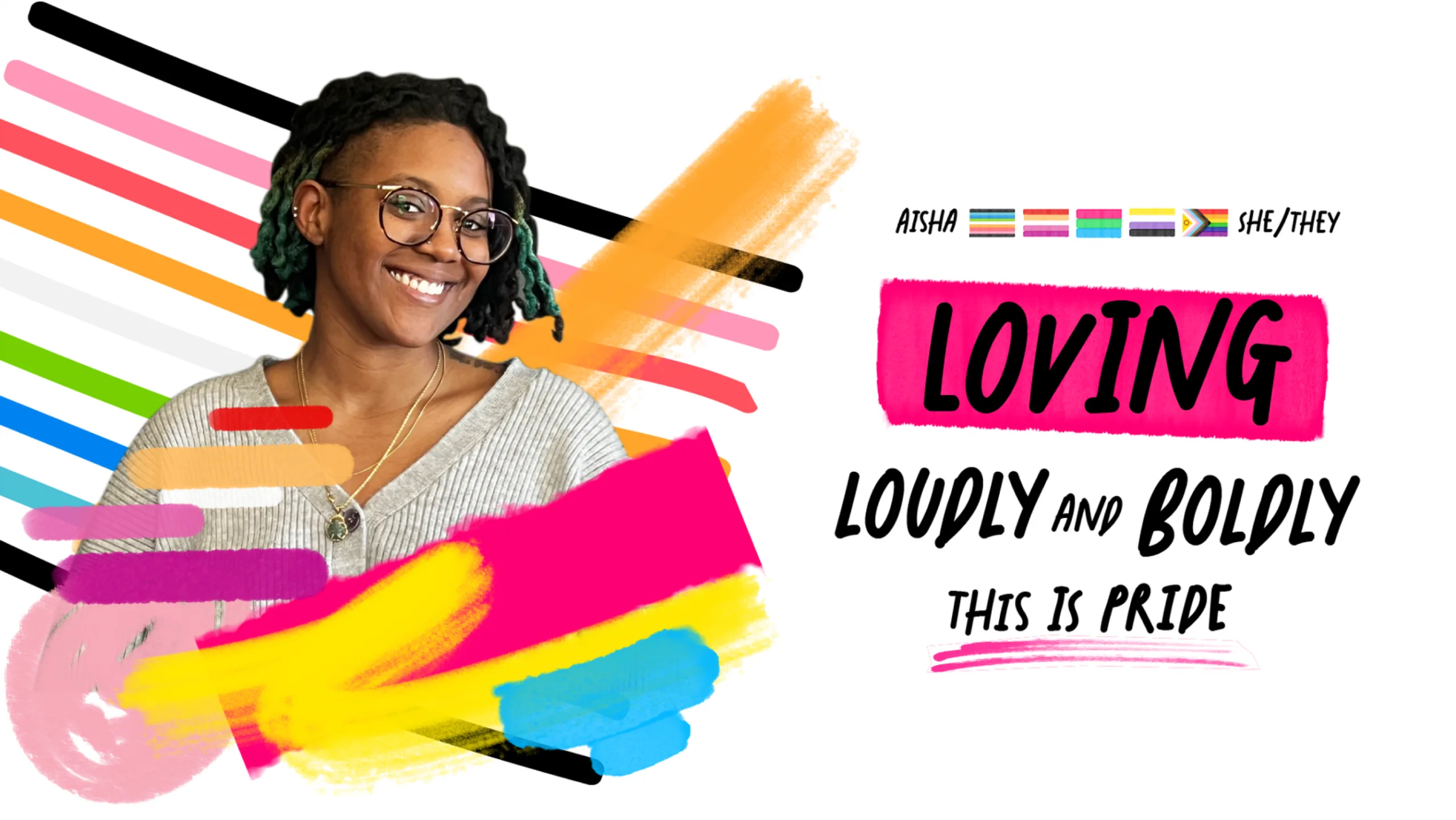
Aisha
She/They
Atlanta
Many of us experience a range of different types of love. For me, loving loudly and boldly means more than just loving romantically. I feel like a lot of times, when we look at Pride, we think about romantic love, partners. For me, Pride is also about other types of love. Pride means loving platonically, loving my community (and, yes, also loving romantically). When I am able to do those things, that is Pride for me. I feel like everyone should be able to love how they want to love, and love whomever they want. And when there are certain laws being passed and rights under attack, I can’t be free to do that.
The anti-trans and anti-drag laws and bans that are happening across the US are a main focal point when we talk about LGBTQIA+ rights. They’re happening because people have an issue with the way people choose to live their lives and make it about themselves—how people choose to live somehow affects them when it really doesn’t. It affects the people who are living those lives. I’m nonbinary, which is under the umbrella of transness. I have friends who are trans and people in my community who do drag performances, so that’s something that matters to me.
Loving my friends, loving my community means creating spaces. It also means being able to go to spaces that are being created. My friends and I have a collective here in Seattle, where I live now. We provide space for predominantly Black queer people to be able to be themselves and show up and feel safe. The spaces that we see for queer folks here are predominantly for white people. BIPOC folks are who we prioritize in our spaces whether they want to sing, share their poetry, or dance. We’re giving space for them to be in community. That’s how I feel like I make Pride and invite others to make Pride for themselves—and that’s something I always want to do.
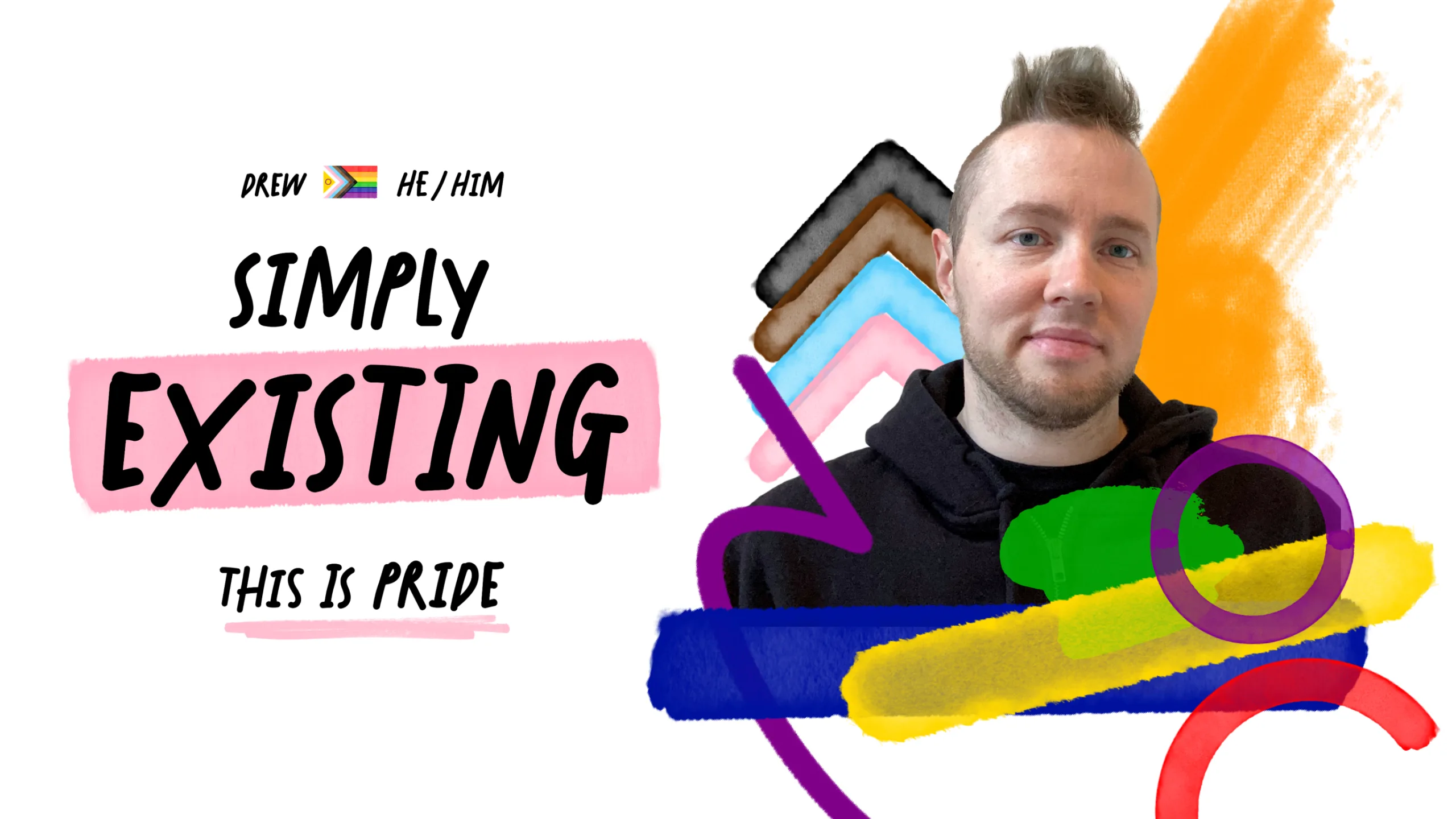
Drew
He/Him
Seattle
When you exist as a human, you need connection to other people. At the end of the day, if you look around and see no one else that has shared experiences, that is isolating. Having grown up in Missouri and having waited to start my transition until I moved away because of how restrictive the environment was then, I see the importance of encouragement and visibility. Today many are trying to outlaw trans people out of existence. But we are here. We’re here, we’re going to be here, we’re Queer, and we have a right to exist.
Existence, success, and visibility are Pride for me. They all go hand-in-hand. There’s this rebellion in continuing to exist as a trans person that is core to the rebellion of Pride. I believe anyone has the right to say, “I need to take care of myself and I’m not going to be visible as a trans person for a while, or maybe forever.” For me, visibility has been the right way to take care of myself. I often self-describe as post-transition, which means there are still ongoing things I live with, but a lot of the stages of transition and their financial implications—income loss, the straight-up costs of medical care—are behind me. So I look back and see a lot of advantages and privilege that helped me, as well as the things that I had to navigate to get to where I am now. And because of that, I want others to know that there are good things on the other side.
For me, Pride is about being able to say I made it. So when others, wherever they are—whether we’re talking about a teen or someone later in life—are feeling like it seems tough to keep going ahead, for them to be able to see pride, success, existence, to know that it’s worth it, is really important to me. Anything we can do to be encouraging others to know they’re worth it… it is important.
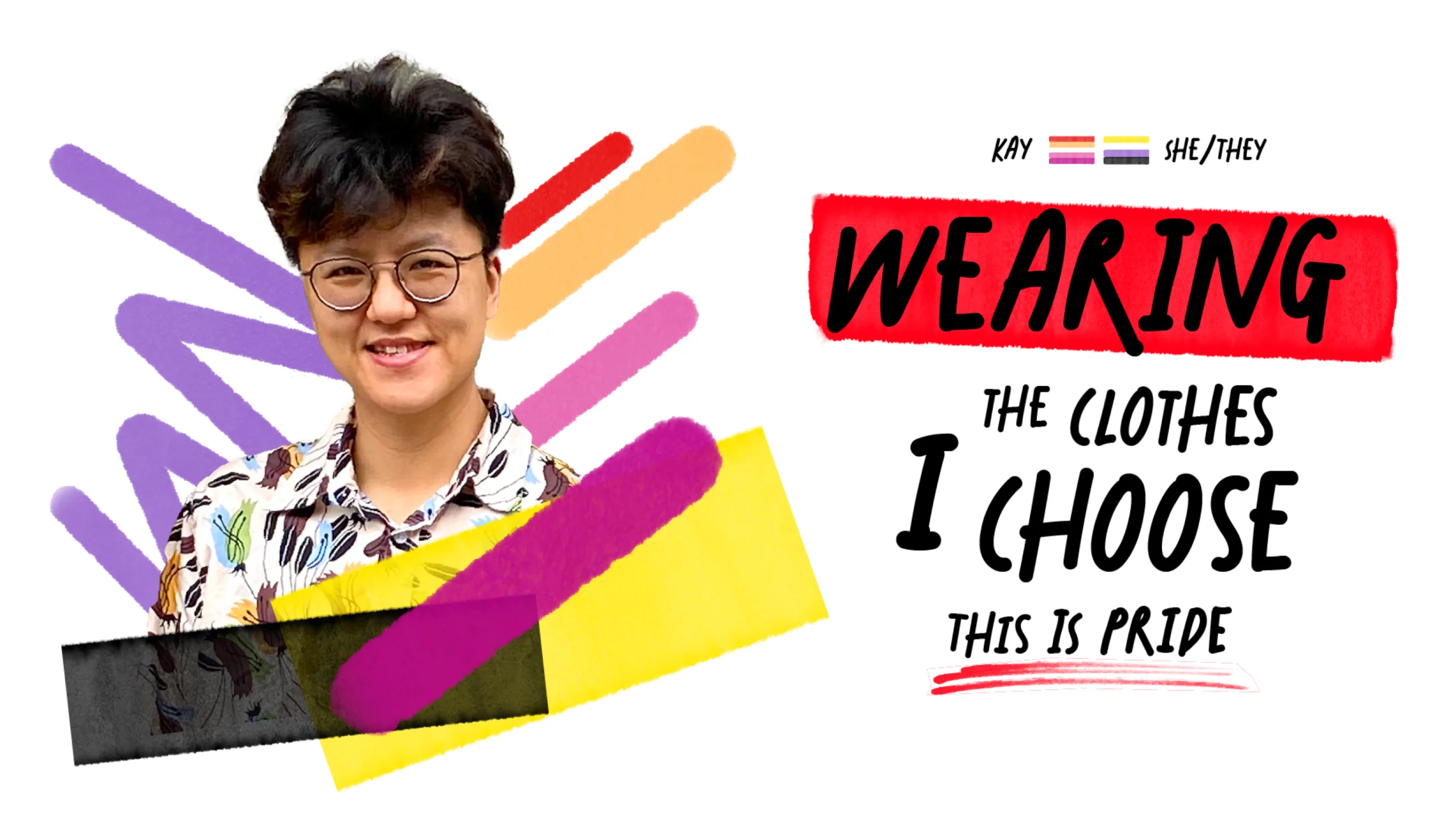
Kay
They/Them
Taipei
We all have different experiences with what we wear from day to day, how we present. There’s a stereotype of boyish girls. There’s a stereotype of engineers, and I’m a support engineer. I think living or walking on the street as myself in my body can encourage others. In Taipei, people perceived as ‘women who dress like men’ often work in bars or restaurants because there’s no required dress code. They’re not comfortable wearing conventionally feminine outfits at work. I’ve gotten to know some of their situations. I encourage them to be something that they want to be rather than working just for the dress code. There are a lot of things that they can do. I also encourage a lot of people to join the Pride parade in Taipei. Last parade, I was there holding the Microsoft flag, proudly standing as myself, with my appearance, my image. I think that may encourage other people who might look like me that they can work anywhere they want.
Although it may not seem directly related, the legalization of same-sex marriage has empowered me and many others. I am now able to enter women’s restrooms without hesitation because of how I am perceived—something that was once a source of anxiety for me. I had been bothered by people telling me to use the men’s room since I was a teenager. I was confused because like 50% of people called me “she” and another 50% called me “he.” I had trouble when entering women’s restrooms globally. Everyone stared at me. I had to make my voice higher or ask my girlfriend to protect me. Now I feel more comfortable than ever before. Legalization here empowered me and many others.
I think these things need to be changed globally. A single change can positively impact numerous lives. There are so many regulations limiting self-expression. For someone who may see themselves in my story, maybe they can see more possibilities and not limit themselves. Maybe they’re not supported by their family, but I want to show them that they’re supported by me and other allies in the world.
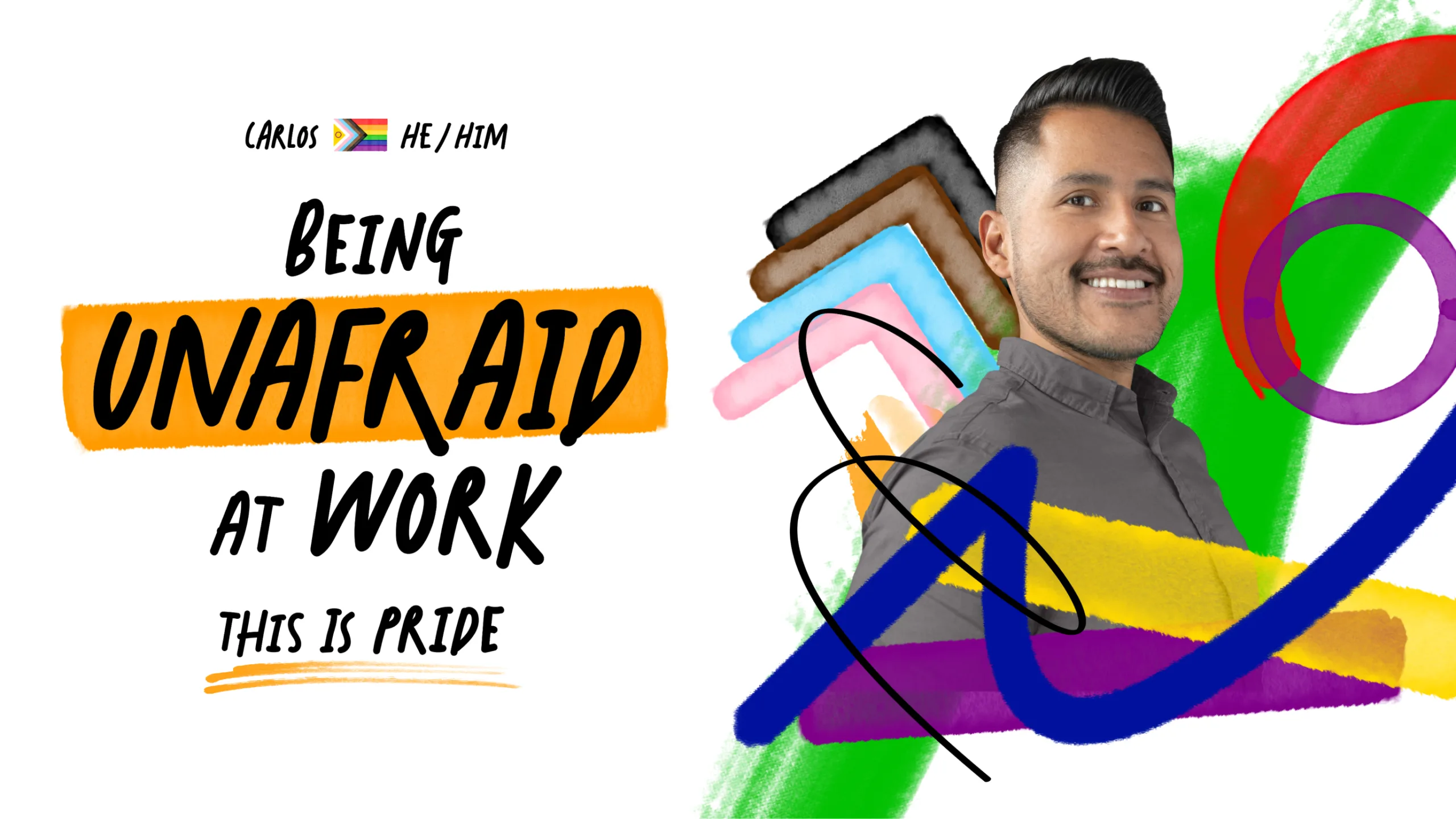
Carlos
He/Him
Lima
Maybe for some it takes less time, but we all go through a journey of learning to be comfortable with who we are. Pride, for me, is about that journey. Growing up in Latin America, being Queer was perceived as not ok, it was made a joke. If you were bad at your job, you were called gay. If you did something your friends thought you shouldn’t do, you were called gay. The way being gay was talked about had a very negative connotation, negative context.
They say Queer people come out many, many different times. It’s not just once. It’s every time we meet someone new. For me, for many years, that was a very anxious process. It’s not about a one-day pass. We go through this journey to just learn to be comfortable with who we are. We tend to move to places that are safe and emphasize the foundation that enabled us to be strong and to continue to move forward.
The most essential thing about my journey has been getting out of the behaviors and environments that made me believe that it was not ok to be Queer, and actually learning to be comfortable with my true self. Regardless of how I grew up, regardless of what society thinks of it. In my first job, I met a person leading the LGBTQIA+ employee resource group in their organization, and they told me “hey, Carlos, if you don’t do it, if I don’t do it, who will?” This shaped my effort. I started LGBTQIA+ employee resource group chapters in Colombia and Peru. I’ve learned to become really unafraid. I come as I am—with my queerness, with my Latino particularities, and I’m very expressive. Today through my LGBTQIA+ activism at Microsoft I’m helping everyone to be unafraid, and to thrive.
Our Pride never stops
We honor LGBTQIA+ people every day of the year. Discover stories of innovation and inspiration from LGBTQIA+ Microsoft employees and community artists year-round with Inclusion is Innovation campaign.
Meet Adam
For Technical Advisor and GLEAM UK Community Lead Adam Dinwoodie, launching the Pride Network at his previous company became a catalyst for his push to create safer spaces in the workplace.
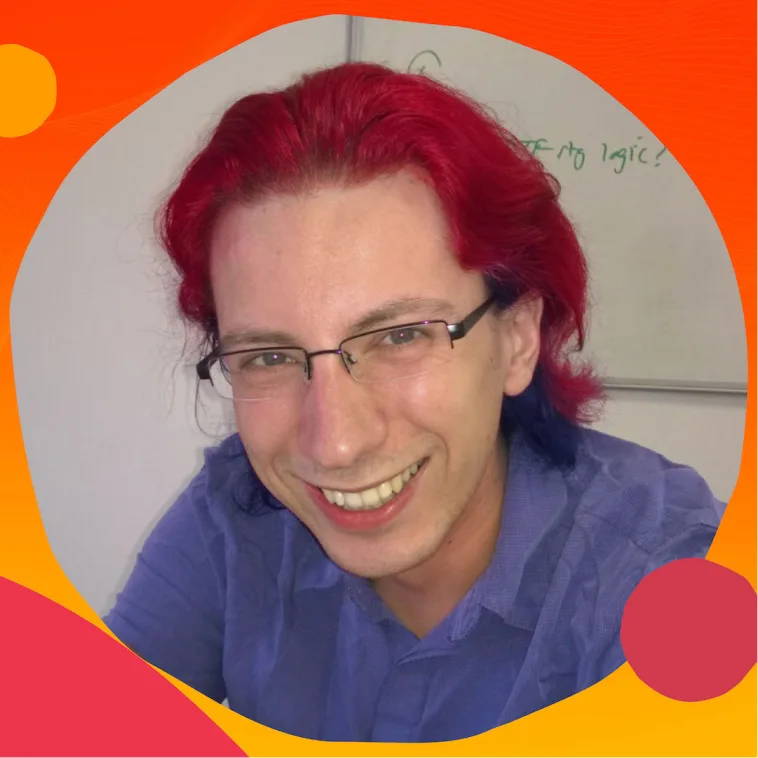
Meet Estera
Senior Program Manager Estera Kot overcame discrimination and cultural barriers to achieve her dreams of love, acceptance, and creating healthcare solutions.
